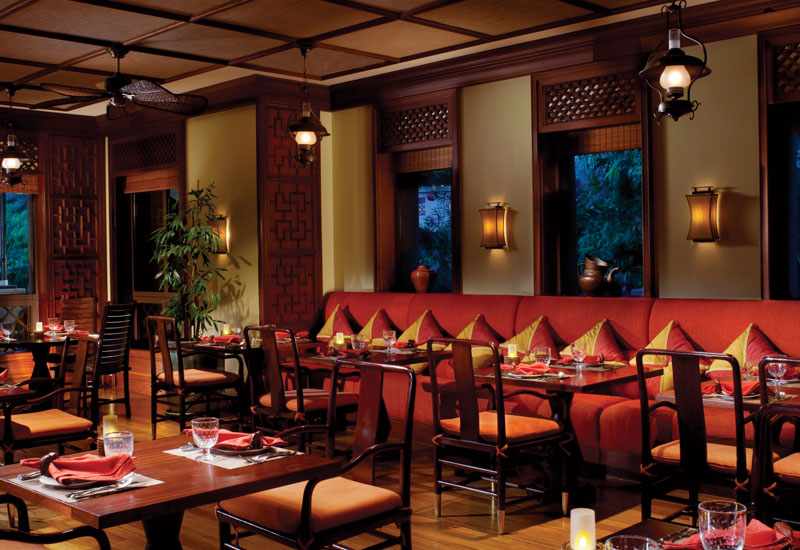 A look at the interiors of Pai Thai, at the Al Qasr Hotel, Madinat Jumeirah, whose chef says the sharing element of the cuisine is popular.
A look at the interiors of Pai Thai, at the Al Qasr Hotel, Madinat Jumeirah, whose chef says the sharing element of the cuisine is popular.
Do you rely on importing ingredients or are there local products used on the menu?
Amatmontri: Half and half — both are very consistent, especially the locally-grown products that we use on the menu.
Boripat: The availability of Thai products in the local market has improved recently. In the UAE, there are several suppliers that specialise in importing Thai products, and provide to hotels as well as the local market. At Sontaya, we fly in herbs and spices from Thailand twice a week so as to ensure freshness.

| Advertisement |
Hayataphat: All of the Thai products are imported; the supply chain has got much better in recent years, which is a big help. Because the flavours and spices are so specialised it’s difficult to get any local alternatives. We grow some of own papaya and herbs in the Wafi gardens, which we use as much as possible.
Tontsoontern: We have fixed contracts with specialised suppliers, who undertake to supply us only the very best and freshest authentic sourced raw materials from Thailand. These are flown in on a daily or weekly basis.
What are the biggest challenges you face?
Amatmontri: Our guests come from a variety of different backgrounds. Some guests might not be familiar with Thai food... the food, is sweet, sour, spicy, a range of flavours. Sometimes the combination of flavours we create are quite different to that of a guest’s usual meal combinations. But this is a good thing and our guests are not disappointed because many find this interesting. I believe that they choose to eat Thai food for that very experience.
Boripat: Thai cuisine is not only about tom yum, phad Thai, chicken green curry or papaya salad. There is a lot more to explore. The challenging thing is to be selective, create and introduce the dishes in ways to ensure that the customer is willing to try something new — in other words, to educate the customers about the cuisine. To do so, a chef needs to be innovative and flexible enough to make the dishes more approachable, more attractive and fun to try.
Tontsoontern: One of the biggest challenges is getting the authenticity and the flavour profiles of the Thai herbs, freshly sourced to the guests’ tables. Given that Dubai consists of a diverse population, one challenge would be keeping up with its cosmopolitan flair, especially as guests are extremely experimental. They are spoilt for choice, so we have to keep up and try to find a balance that suits the palate of every individual.
What is the latest trend in Thai cuisine, which you have noticed across the world?
Amatmontri: The newest trend is creating different concepts, almost fusion. Tapas and small dishes, small dishes are popular in many areas now, rather than bigger portions and fuller meals.
Boripat: Authentic Thai cuisine with modern interpretation using the freshest and highest quality ingredients available.
Hayataphat: Like everywhere the trend nowadays is all about healthy organic eating.








 Search our database of more than 2,700 industry companies
Search our database of more than 2,700 industry companies









